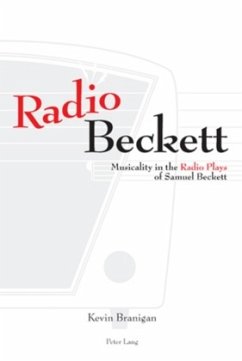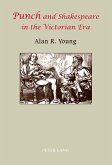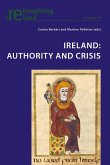In the decade following the success of Waiting for Godot (1952), Samuel Beckett wrote some of his most absorbing work for radio. These plays display the author's appreciation of the essential properties of radio broadcasting. They also highlight a profound musicality which, while evident in his novels, poetry and plays, is particularly noteworthy in this medium.
This book is an analysis of the contribution made to radio drama by Beckett. In these plays, he is concerned with themes of human isolation and the frailty of memory and communication. He identified radio as an ideal medium for the presentation of these themes and the development of drama which could transcend the limitations of realism.
Beckett used music as an essential component of his radio output for a variety of purposes. In this study, the author argues that, while Beckett's radio plays are suffused with a bleak sense of disintegration of language, music offers a sense of optimism. A variety of musical and performance perspectives is utilised to gain a greater appreciation of these radio plays.
This book is an analysis of the contribution made to radio drama by Beckett. In these plays, he is concerned with themes of human isolation and the frailty of memory and communication. He identified radio as an ideal medium for the presentation of these themes and the development of drama which could transcend the limitations of realism.
Beckett used music as an essential component of his radio output for a variety of purposes. In this study, the author argues that, while Beckett's radio plays are suffused with a bleak sense of disintegration of language, music offers a sense of optimism. A variety of musical and performance perspectives is utilised to gain a greater appreciation of these radio plays.








